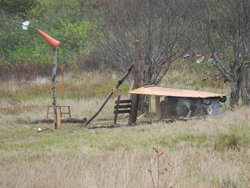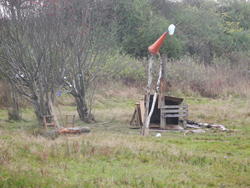Written by:
By Christopher Rowe
I define power as the ability to mobilise resources to meet our needs.
Since 2008 I have been working in the parish of Colston Milton, which comprises the Milton housing scheme in the north of Glasgow and which sits within the bottom 5 per cent on the Scottish Index of Multiple Deprivation. I have been involved in leading Love Milton, a community development trust for Milton, which, among other projects is seeking to enable to the community of Milton to build their own community centre, including a place of sanctuary and of worship.
We have done pretty well at mobilising the resource of local people; their vision and enthusiasm, their hopes and dreams. This is not to be sniffed at, but let us be under no illusions it may be a necessary first step, but it is not sufficient. The resources of local people have helped meet our need for clarity and vision, but these resources are not able to meet the needs associated with implementing that vision.
Those resources lie in the hands of local authorities, developers, town planners, funders and housebuilders. Even where local people and planners are in agreement, if you lack land and money, you won’t get very far.
It is probably no bad thing that there has to be a degree of partnership and convincing to be done between people with vision and people with money and people with authority for planning, but it feels as though there is a huge power mismatch between the local people who have vision but few resources to implement that vision, and those with plentiful implementation resources but who lack the vision of communities.
A lot seems to be made by those with greater access to money and land, of the need for accountability: the local vision must be held to account by those with money. The local people who have the vision must demonstrate over and over again that their vision is broad and inclusive; consultation follows consultation. Yet our resource of vision is a diminishing asset: people get cynical and disillusioned, they see precious financial and people and time resources ‘wasted’ as the consultations and plans and architects drawings produce nothing on the ground.
And every time it happens, it becomes harder to create and sustain a vision for a positive future. Where is the accountability ‘upwards’ (which is what it feels like to have resources of vision but lack resources for implementation)? Where is the accountability in property companies demanding full market value for derelict land that has sat vacant for years, that has no prospect of being built on or used productively? Where is the accountability of funders who can change criteria during a process? Where is the accountability of planners and policy makers who determine that ‘religion’ is bad – even where the Church of Scotland is the only organisation that has consistently supported a community with investment in people and buildings and which exists to serve a community with no sense of reward?
Who has the right to make decisions about the future of place? I’m not sure if we should talk about right to make decisions in our context as much as who has been bothered to make decisions about a place. Our desire to make decisions is a sign of our fitness to do so, and to be taken seriously by others who perhaps have a greater legal right and responsibility for land and money but lack the motivation.


Images of grassroots placemaking in Milton, using reclaimed and natural materials
In terms of power – the ability to mobilise resources to meet our needs – the resource of vision does not really get a look in. The resources of land and money is everything and we feel powerless. We are not powerless, but we are constrained, we need to work with others to use their resources; local authorities are not all powerful, and doubtless feel constrained and they do not seem to know what ‘to do’ with places like Milton i.e. they lack a resource of vision. The resource of land is key. Ownership of the land opens up access to funding – by no means guaranteed, but at least open to suggestion, and then to implementation of a dream.
“Where you have vision and the land and resources, anything is possible!”
In February 2008, Reverend Christopher Rowe was ordained and inducted into the parish of Colston Milton. He is committed to sustainable living and to healthy communities and is a founding director of Love Milton, a community development trust for Milton.

